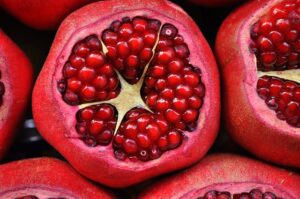First of all, it is worth pointing out all the benefits breastfeeding provides to a newborn. It’s about the composition and other distinctive features of breast milk:
- It always has an optimal temperature;
- It contains all the necessary nutrients, vitamins, and trace elements;
- It is able to adjust to the needs of the baby, changing over time the composition and nutritional value.
But unfortunately, sometimes, it happens that a new mom does not manage to breastfeed. Then a baby formula is used for feeding newborns. Don’t worry, as it is designed to provide the baby with all the necessary components for growth and development.
As a result, the child gets just the right product for him or her. Of course, we should talk about safety only when the mom follows the appropriate diet. Remember that the molecules of the food eaten by the woman with breast milk get into the baby’s body.
Quality nutrition helps to maintain a prolonged and quality lactation.
Why healthy nutrition is important when breastfeeding
As mentioned above, everything the mother eats goes into the baby’s body with breast milk. It is of great benefit for the health, growth, and development of the baby and the prevention of allergic diseases in the future. But it can also cause him harm, digestive problems, and allergic reactions because the newborn’s gastrointestinal tract is still forming. Proper nutrition is the key to ensuring that the child will receive only good nutrients from the mother, which will help him fully grow and develop to the joy of his parents.
What to eat as a nursing mother?
The first week is the most crucial week for mother and baby – the baby is just adapting to life outside the womb. During this week, a breastfeeding mother should reduce or eliminate milk consumption, which does not help, as it is commonly believed, to increase lactation. It has been found that milk provokes gastrointestinal disorders in the mother and baby and can also be a trigger for allergic reactions in the baby. It is not recommended to drink juices, tea, and coffee in the first week.
For a breastfeeding mom, it is essential to know that the quality of milk does not change significantly depending on what foods you eat. Even if you don’t get the necessary nutrients from the food, the body will make up for the lack of nutrients in the milk from its reserves. But for your own well-being, it is vital to ensure that you get all the necessary nutrients your baby needs. That is why it is recommended to include the following foods in a nursing mother’s diet. If you get these foods in your body regularly, both your body and your baby will be immensely grateful to you.
- Green vegetables
The health benefits of green vegetables and greens such as spinach, broccoli, and salads are endless. They are rich in vitamin A, which a child should get from milk. They are a dairy-free source of dietary calcium. They contain vitamin C and iron. Finally, green vegetables and greens contain the antioxidants your heart needs. These foods are low in calories and taste good.
- Lean meat
When you choose a diet to give your body the energy it needs, make sure you get enough iron-containing foods, such as lean meat. Iron deficiency leads to a loss of energy, so you won’t be able to cope fully with caring for your newborn. Also, while you are nursing, you need increased amounts of protein and vitamin B12. Lean meat is an excellent source of both ingredients.
- Salmon
Although there is no perfect food, Salmon is very close to it because it is an invaluable component in the diet of nursing mothers. Like other types of fatty fish, Salmon is rich in polyunsaturated fatty acids, which are necessary for developing the baby’s nervous system. Breast milk has polyunsaturated fatty acids, but their quantity in women who use Salmon is much higher than in others. Polyunsaturated fatty acids also improve the state of your mood. Studies have shown that they play a role in preventing postpartum depression.
- Water
A dehydrated body has a vast energy shortage. And breastfeeding moms are especially at risk. To maintain your body’s energy levels and milk production, make sure you drink enough fluids.












